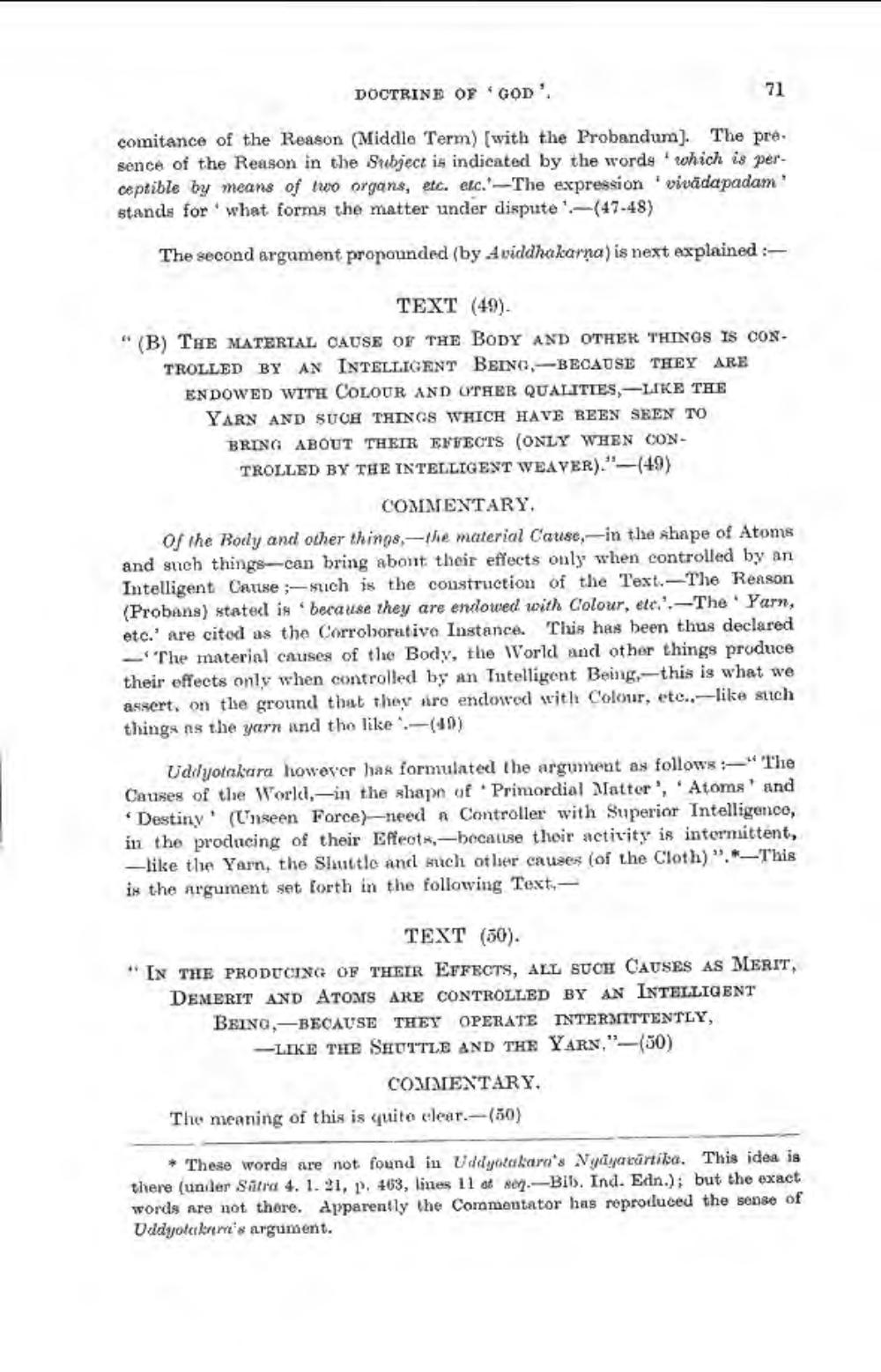________________
DOCTRINE OF GOD.
comitance of the Reason (Middle Term) (with the Probandum). The pre. sence of the Reason in the Subject is indicated by the words which is perceptible by means of two organs, etc. etc.'--The expression 'vivāda padam' stands for what forms the matter under dispute'.-(47-48)
The second argument propounded (by Aviddhakarna) is next explained :
TEXT (49). "(B) THE MATERIAL CAUSE OF THE BODY AND OTHER THINGS IS CON
TROLLED BY AN INTELLIGENT BEING, -BECAUSE THEY ARE ENDOWED WITH COLOUR AND OTHER QUALITIES, LIKE THE YARN AND SUCH THINGS WHICH HAVE BEEN SEEN TO BRING ABOUT THEIR EFFECTS (ONLY WHEN CONTROLLED BY THE INTELLIGENT WEAVER)."-(49)
COMMENTARY. of the Body and other things,-the material Causc,-in the shape of Atoms and such things-can bring about their effects only when controlled by an Intelligent Cause ;-such is the construction of the Text.-The Reason (Probans) statel is because they are endowed with Colour, etc.':--The Yarn, etc. Are cited as the Corroborative Instance. This has been thus declared - The material causes of the Body, the World and other things produce their effects only when controlled by an Intelligent Being--this is what we assert, on the ground that they are endowed with Colour, etc., --like stich things is the yarn and the like (49)
Udilyotakara however has formulated the argument as follows:-"The Causes of the World in the shape of Primordial Matter', 'Atoms and
Destiny' (Unseen Force) - need a Controller with Superior Intelligence, in the producing of their Effects-because their activity is intermittent, -like the Yarn, the Shuttle and such other causes (of the Cloth)".*_This is the argument set forth in the following Text: -
TEXT (50). * IN THE PRODUCING OF THEIR EFFECTS, ALL SUCH CAUSES AS MERIT, DEMERIT AND ATOMS ARE CONTROLLED BY AN INTELLIGENT BEING,—BECAUSE THEY OPERATE INTERMITTENTLY, -LIKE THE SHUTTLE AND THE YARN,"-(50)
COMENTARY. The meaning of this is quite elear.-(50)
* These words are not found in Uddyotakaros Vyāyacurtika. This idea is there (un der Sätra 4. 1. 21, 463, lines 11 st sel.-BID. Ind. Edn.); but the exact words are not there. Apparently the Commentator has reproduced the sense of Uddyotakari's argument.




